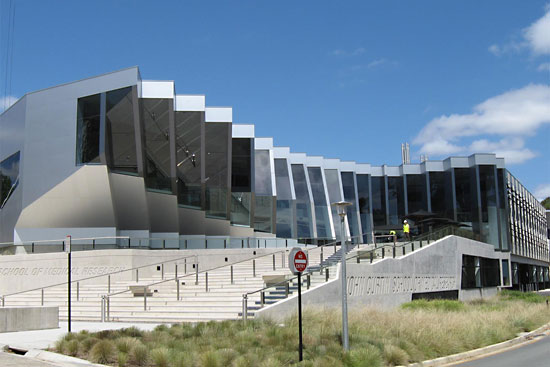ANU: Supporting freedom means staying the course
Australia needs to commit to supporting Ukraine in the face of Russia’s illegal invasion for the long term, Matthew Sussex writes.
Today Ukraine’s President Volodymyr Zelenskyy will speak to a packed crowd at The Australian National University in a rare address to our nation. His speech will be his first direct public engagement with an Australian audience, following his address to Parliament on 31 March.
Zelenskyy’s appearance, some six months into an illegal Russian invasion that has brutalised his people and seen many of their cities reduced to rubble, is an acknowledgement of the strong support shown to Ukraine by both the Albanese and Morrison governments. Australia has delivered Kyiv much-needed military assistance and humanitarian and financial aid. It is providing Ukrainian refugees with a safe haven. It has sanctioned Russians linked to Vladimir Putin’s ruling clique, and has been a leader in vocally condemning the repugnant abuses carried out by Russia’s invaders.
But Zelenskyy’s speech means far more than a chance for Australians to congratulate themselves on their generosity. Ukraine’s plight is the biggest test yet of Australia’s and the broader West’s commitment to upholding freedom against external aggression.
If we fail that test it doesn’t just mean that Ukraine ceases to exist as anything more than a weak rump state. It will embolden authoritarian regimes in Eurasia, the Middle East and our own region, confirming to them that their assumptions about a divided, risk-averse and declining West are correct.
That is why Australia and other self-styled champions of the rules-based liberal order need to stay the course. This will be a long war of attrition. That’s something foreign to Western publics that have come to expect military conflict to resemble brief police actions, and have developed short attention spans as a result.
We will also have to recognise that the West won’t achieve strategic outcomes with sanctions and support alone. Deterring aggression means accepting risks and costs, whether they come via Russian threats to interrupt Germany’s gas supplies, or Putin’s incessant nuclear sabre rattling. For some time, Putin has held the upper hand when it comes to escalation control in Europe, content in the knowledge that NATO’s insistence on defusing tensions would eventually give him what he wanted. In many ways we have telegraphed deferment rather than deterrence.
Ukraine is now paying the price for years of Western governments being content to kick the Russia can down the road, on the false assumption that Moscow could somehow be managed. What might deter us clearly did not deter Putin; he regards sanctions as weakness, and doubtless saw Western assurances that NATO would not intervene in Ukraine before the war as little more than a green light.
We should also ignore the temptation to see Putin’s complaints about NATO enlargement as somehow forcing him to invade Ukraine. Such self-loathing buys into the Kremlin’s preferred narratives designed to further weaken the West. It is also clearly nonsense. Putin merely shrugged when Finland and Sweden subsequently announced they wanted to join NATO, and he has gone on record to say that Ukrainians deserve no identity or sovereignty. His claim that now it was his turn to emulate Peter the Great and take back land that is rightfully Russian was Putin at his most uncharacteristically truthful: the war is a product of Russian imperial expansion, not NATO’s.
Putin also thinks he’s winning. That’s why he is manifestly uninterested in diplomatic off-ramps in spite of the continued desire of the US, France and Germany to offer him one.
As the war in Ukraine grinds on, it is time to remember that if we are going to be honest to ourselves about supporting freedom, rules and openness, we need to practise what we preach – regardless of whether the threat is thousands of kilometres away, or facing us directly.
That’s because the example we set today will be the standard we are judged by in future. Our credibility in a region where the old comfortable order increasingly faces fragmentation will be determined by seeing our commitments through. And our ability to avoid Ukraine’s fate will be dictated by whether we are prepared to turn a blind eye to aggression, or have the courage to face it down.

